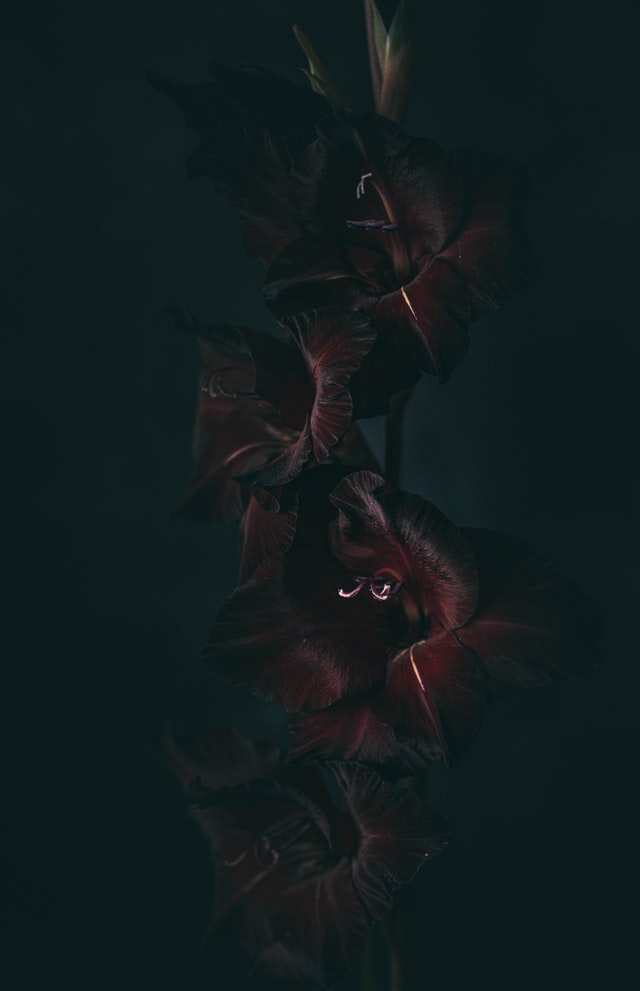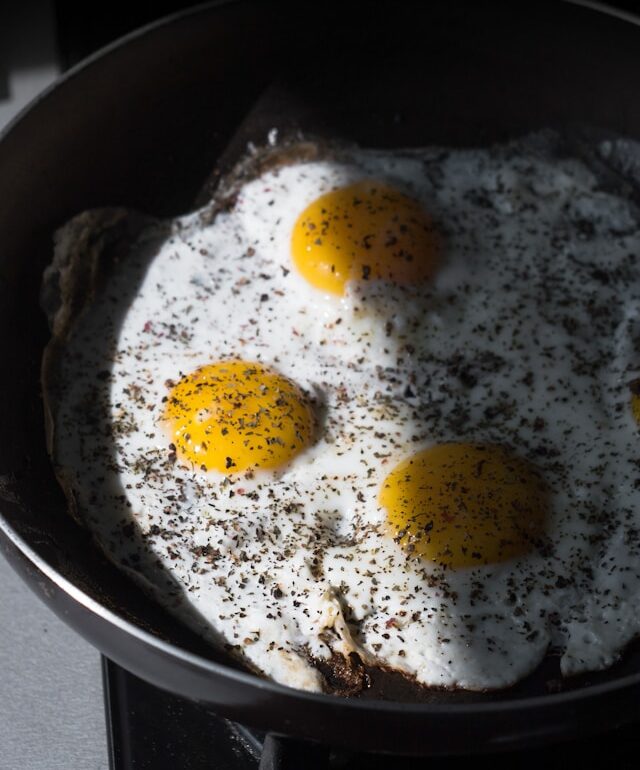Ophelia’s Herbal Remedy
“What are you doing out here?” she asks, standing in the doorway of the shed. She is backlit, but he does not need good lighting to see the scowl on her face, the wrinkling of her brow as she peers in. She looks around the room, examining the organized hooks and hangers for tools, cans marked for screws and nails, all lined neatly along a shelf.
He smiles at her, nods toward a few terracotta containers along the workbench. “Just repotting a few things. That sweet potato vine was spreading out and something keeps eating at the marigolds.” He touches the serrated leaves, revealing half-bitten stems and missing buds. She nods, inspecting his work.
“The gladiolas never came up this year. You need to call the company. We can’t afford to waste good money on bulbs that don’t come up.” She digs her fingers through a can of washers, slips a large one around her thumb, spins it idly. “If we have to save all these rusty bits, we can’t afford new bulbs every year.”
He winces at her words, brushing dirt from his hands, and pushes his glasses further up his nose. “We didn’t plant glads this year, love.”
“What are you talking about? We plant them every year,” she says with a frustrated sigh. Ripping the washer from her finger, she tosses it into a can on the shelf. It is the wrong one, he observes, and makes a mental note to retrieve it later.
“We didn’t plant gladiola bulbs,” he sighs.
“We plant them every year. In front of the honeysuckle bushes. Why wouldn’t we plant them? Why are you lying about what bulbs we plant?” She shifts her weight from one foot to the other, scans the shelf above the workbench looking for something. Retrieving a seed catalog, she opens it, flipping through the glossy pages. As he watches her, her hair tucked behind her ears away from her face, he remembers a washed-out photo: his wife as a teenager with her parents in front of their house, spears of gladiolas piercing cloud-sized honeysuckle bushes behind their smiling faces. “Why didn’t you circle them? How do we know what to order if you don’t mark it in the book?” She holds out the page, showing various hues and varieties of gladiolas, unblemished.
“We didn’t order them this time. The deer eat them every year,” he says. “You didn’t want to waste the money on ‘deer food.’”
“Right, right,” she says, handing him the catalog. “That’s because we can’t afford to waste our money like that. I’m always trying to find cost-savings. Why do you think I spend hours clipping coupons every week…”
He nods at the familiar soliloquy, imagines her at the kitchen table, drowning beneath stacks of newspapers, fliers, and ads. The Audubon clock on the wall chirps three o’clock as the arm tucks beneath a goldfinch. “Should we start thinking about the fall plantings? What do you want to see crop up in March and April after a long winter? All that snow. Bits of green always cheer you up.” He opens the catalog once more, but he can see she is tired, her eyes glassy.
“Why should I think about that now?”
“Because if we want to have snowdrops and daffodils in the Spring, we need to plant them before the first frost,” he says, but closes the catalog, dropping it.
“When’s the first frost?” she asks, staring at the clock, the second hand ticking into place.
“My grandfather would always say it was six months after the first thunderstorm in Spring.”
“What use is that? Did you mark down when the first thunderstorm was?” She looks around the shed once more before declaring, “I’m going inside. Are you coming?”
“I’ll be in soon enough. Jamie sent up some seeds. I want to plant these now and see what comes up.” He picks up a packet of sunflower seeds and opens it.
“Who?”
“Jamie.”
“Yes, right. I just didn’t hear you is all. You mumble.”
“I didn’t mumble.” He fills an egg carton with potting soil and begins placing a single seed in each divot.
“Yes, you do. You always mumble. Especially when you have a lot on your mind.”
“I don’t have anything on my mind except planting these seeds that Jamie sent us,” he says, sowing the last seed.
“Well, that was very nice of him. But it’s a bit late for planting seeds, isn’t it?” she asks, looking back at the clock.
“Her,” he corrects. “That was nice of her.”
“That’s what I said. Why are you putting words in my mouth?” She scoffs, shaking her head, and walks toward the shed door.
“Who’s Jamie, love?” His words are quiet, barely audible, as he looks at the dirt laid out in neat rows before him.
“How can you ask such a question?”
“Please, love. Who is Jamie?” he presses.
“She’s, you know very well who she is. I won’t play these silly games of yours. First the bulbs, now this. I’m going inside.” She walks out of the shed, eyes blinking in the fading sunlight. “I’ll put the kettle on for tea,” she calls over her shoulder. “Sun’s going down. Don’t stay out here too long. The cold will stiffen your back.”
“I won’t. I’ll bring in herbs for your tea. Just let me clip them and then I’ll be in.” He follows her out of the shed, watches her cross the yard. He waits till she is inside before taking the shears from his back pocket and prunes sprigs of rosemary, down to its woody stems. Carrying the herbs into the shed, he scatters them along the workbench and begins to twist the fragrant branches together, shaping them into a crown. As he finishes, he hears the wail of a smoke detector in the distance. “Pray you, love, remember,” he mumbles, darting out of the shed and toward the house, the rosemary crown cast to the ground.

Shelly Jones, PhD (she/they) is a Professor of English at SUNY Delhi, where she teaches classes in mythology, folklore, and writing. Her speculative work has previously appeared in Podcastle, New Myths, The Future Fire, and elsewhere. Find her on Twitter @shellyjansen.



